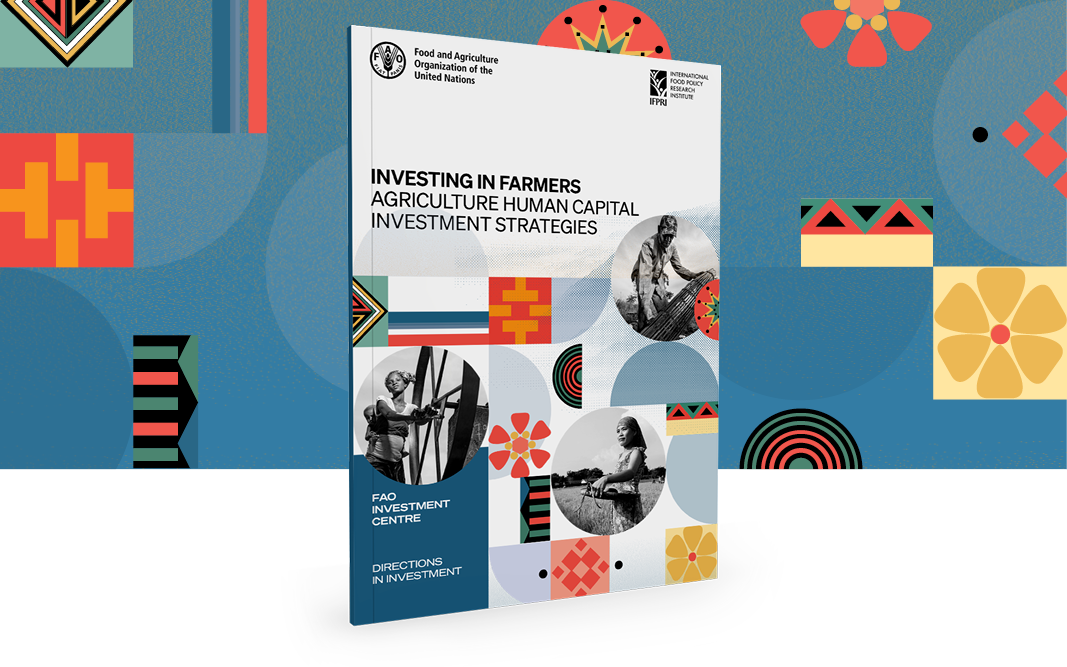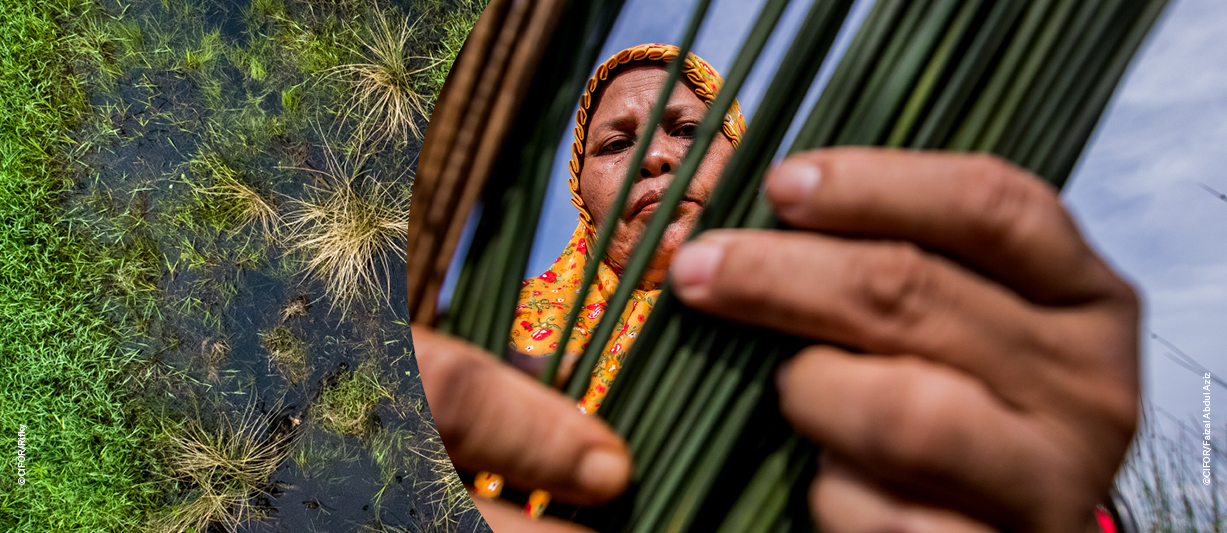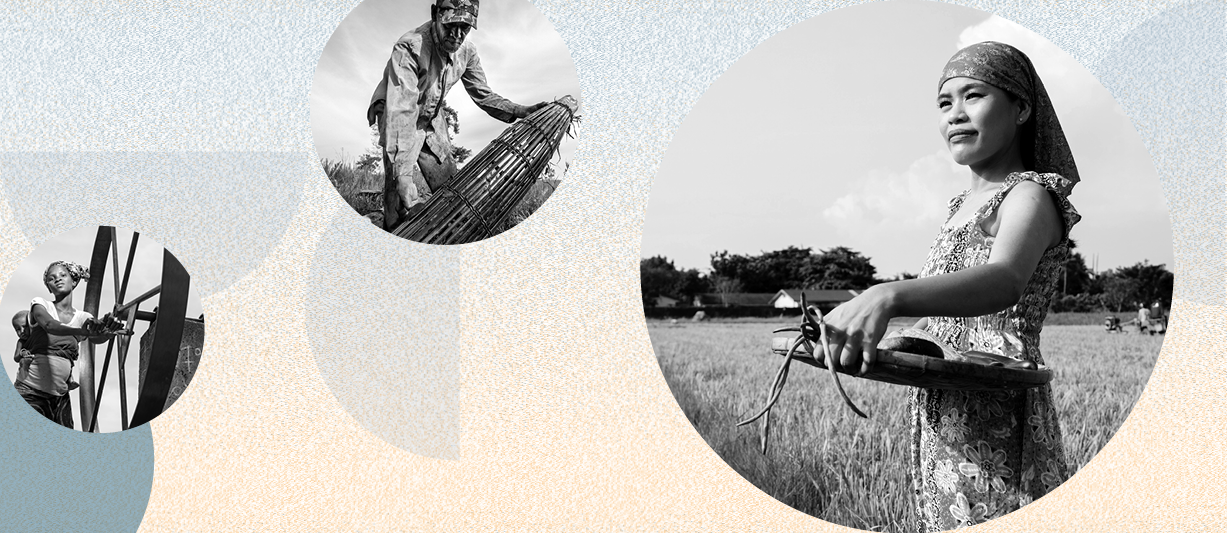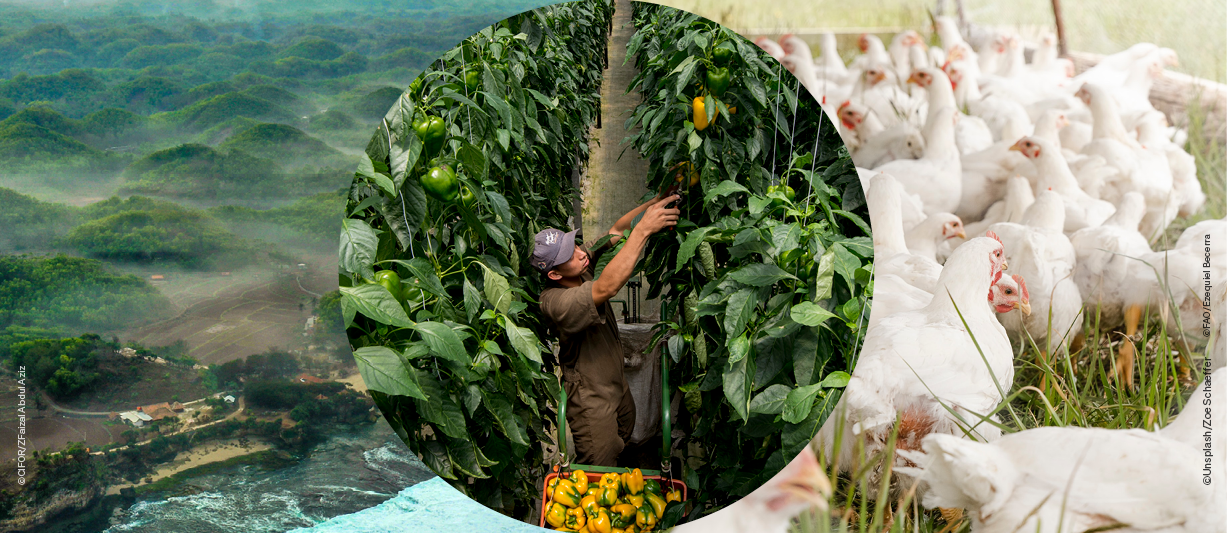Keeping pace with a rapidly changing world

Today more than ever, farmers face disruptive changes – from an explosive rise in digital technologies, shifting diets and rigorous global and national food safety standards, to climate change, labour shortages and global pandemics like COVID-19.
Farmers need to be able to analyse, innovate and adapt to keep up with this rapidly changing environment while also managing their own farming businesses.
But what’s the best way to invest in strengthening the skills and capacities of small-scale farmers so they can respond to today’s most pressing agri-food challenges, whether that’s feeding a growing global population with healthy, nutritious and safe food or making agriculture more climate smart?
Seeking answers to this and other questions, the FAO Investment Centre embarked on a year-long global study with the International Food Policy Research Institute (IFPRI), with support from the CGIAR Research Program on Policies, Institutions, and Markets (PIM) and the FAO Research and Extension Unit.
Investing in Farmers: Agriculture Human Capital Investment Strategies showcases the study’s findings, including promising initiatives and recent trends like shifts in financing and increased digitalization.

FAO Investment Centre’s Deputy-Director John Preissing, one of the lead authors, pointed to the study’s timeliness.
“We have all of these compelling new needs and demands concerning agri-food systems. At the same time, only a small proportion of development aid has been dedicated to strengthening farmers’ capacities over the last decade or so,” he said.
“It is our hope that the study’s data, success stories and thematic briefs will give governments, international financing institutions, the private sector and other partners the evidence and analysis they need to make more and better investments in agriculture human capital,” he said.
Positive spill-over effects
The study looks at successful initiatives in Cameroon, Chile, Côte d'Ivoire, India, Indonesia, Kenya, Peru, Rwanda and the United States of America. It also includes 11 shorter case studies, ranging from pastoralist training centres to the inclusion of indigenous communities.
According to Kristin Davis, Senior Research Fellow in IFPRI’s Development Strategy and Governance Division and another lead author, the study found that investing in agriculture human capital contributes to autonomy, empowerment and economic development.
Positive spill-over effects include increased rural incomes, better health and nutrition, social cohesion and greater inclusion of women and youth.
“I was surprised by the huge diversity of models, both formal and informal, used to strengthen farmers’ skills and capacities, and also the way human capital development enhances social relationships,” she said.

In Colombia, for example, a WhatsApp group shared timely information on new practices and equipment with cattle farmers, boosting their social capital and business efficiency.
Thanks to apprenticeships, mentors and on-the-job training in Trinidad and Tobago, at-risk youth and women have successfully launched their own businesses and products.
The use of farmer promoters and farmer field schools in Rwanda’s Twigire Muhinzi National Extension System has improved farmers’ skills and critical thinking as they shift toward more market-oriented farming. As one field school facilitator said, “When choosing my farm investment, I make projections and base my decision on the expected yield so that I am sure it’s worth it.”
In India, women master trainers and community service providers not only gained technical expertise in livestock farming but also developed greater self-reliance, gender equity, empowerment and recognition in their communities.

Looking ahead
As the world continues to change, so too will human capital needs. Greater investment in innovative and cost-effective programmes that strengthen and measure human capital development, especially in rural communities, is essential.
Understanding what motivates farmers is key to the success of such investments, Preissing said.
“Incentives for learning, rooted in the needs and aspirations of farmers, are just as important as capacity building programmes,” he said.
More research and analysis on agriculture human capital investment is also vital, Davis added.
“I hope people start to recognize the importance of human capital. As a researcher, I would like to see a lot more empirical knowledge generated, which investors can act upon, whether that’s how to invest in this area sustainably or how to scale up successful initiatives,” she said.
“But beyond that I would love to see small-scale producers and other rural people empowered, skilled and equipped to make a good living from agriculture.”
*
In addition to the global report, FAO and IFPRI have published the country case studies in Chile, India, Indonesia, Kenya, Peru, Rwanda, the United States of America. In 2022, further case studies for Cameroon and West and Central Africa to follow along with four thematic investment briefs – on digital agriculture, economic analysis, private sector and youth – to guide investors on strengthening farmers’ capacities
